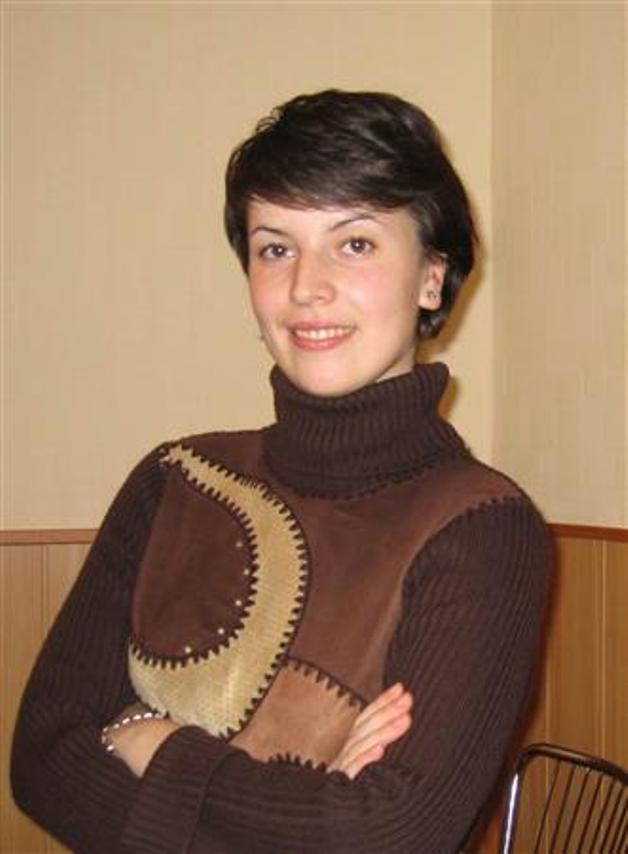Persönliche Informationen | Erster Vorname:
Anna | Zweiter Vorname:
| Nachname:
Lekush | Beitrittsdatum:
02/26/2009 | E-Mail-Adresse:
Sie müssen angemeldet sein, um dies zu sehen! | Webseite:
Keine bereitgestellt | Geschlecht:
Weiblich | Profil:
Having a degree in linguistics/translating, I provide a fast, accurate and flexible translating service.
I translate Websites and documents referring to business, finance, marketing, tourism, literature, IT, cinema, food industry, fashion, music industry and politics, as well as certificates, diplomas and personal correspondence.
I also proofread English to Russian translations.
Contact details:
Email: annalek24@gmail.com
Skype: ania170982
Mobile: 07 95 46 45 853
|

|
|
| Titel des Artikels: French to English translation (Extract from the essay on the life and creative work of Friedrich Hahnemann by DENIS FOURNIER) | Erstellungsdatum:
02/26/2009 | Aktualisiert am:
08/11/2009 | Sprache:
French | Kategorie:
Translation | TranslatorPub.Com Rang:
84 | Views:
5505 | Kommentare:
0 | Bewertungen:
0, Bewerten Sie: 0 (10 Max)
| Text:
Original Text:
Les intervenants dans le parcours académique de Friedrich
On ne peut douter de la réussite des études universitaires de Friedrich lesquelles, il faut le rappeler, se sont terminées dans un contexte particulier : son père ayant publié son Organon der rationellen Heilkunde – Organon de la médecine rationnelle (1810), il avait riposté à une de ses critiques bien qu’il ne soit pas encore diplômé (1811). Ce qui aurait pu être préjudiciable lui fut évité par les manoeuvres du père. Malgré cela, n’était-ce pas un honneur que, parmi tous les finissants de l’année en médecine, il soit celui qui ait été choisi par le doyen de la faculté pour présenter son parcours scolaire? (D’autres professeurs faisaient-ils de même pour les autres finissants?).
Certes, de la part de Ludwig, ce geste est une reconnaissance des talents et des aptitudes du jeune homme. Mais il a peut-être aussi agi, sinon par admiration, au moins par bienveillance pour le père « dont les mérites sont fort estimables », tel qu’il le signale dans sa présentation de Friedrich. En effet, on le verra plus bas, Ludwig et Hahnemann ne sont pas des inconnus l’un pour l’autre.
Dans son autobiographie, au ton complaisant, en insistant sur ses acquis de connaissances, et bien qu’il nomme ceux qui y ont collaboré, Friedrich nous révèle peu de chose quant à sa vie personnelle. Toutefois les données sur sa formation pré-universitaire montrent le net soucis de ses parents à lui assurer une instruction privilégiée. Ce à quoi il ne faudrait pas négliger de souligner l’éducation apportée par sa mère Johanna Henriette que l’on sait cultivée; sans doute lui doit-on, à elle, que Friedrich jouait autant de la guitare que du piano.
D’autre part, les « précepteurs de la maison et de Torgau » lui ont donc bien appris le dessin, la géométrie, puis les idiomes classiques (grec et latin), pendant que son père contribuait à son instruction « dans d’autres disciplines », l’initiant aussi aux langues modernes, le français, l’anglais, l’italien de même qu’à l’arabe. En réalité, jeune homme aux capacités certaines et aux dispositions pleines de promesses, plusieurs témoins accordent au fils Hahnemann une grande intelligence.
(This essay was written by DENIS FOURNIER)
French to English translation:
Those involved in Friedrich’s academic career.
There is no doubting the success of Friedrich’s university studies, which, it should remembered, were completed under unusual circumstances: after his father’s publication of his Organon der rationellen Heilkunde – Organon of Rational Medicine (1810), he responded to one of his father’s critics even though he had not yet graduated (1811). Anything that could have been damaging for him was avoided thanks to the actions taken by his father. Despite of all this, was it not an honour that it was he, among all the final year students in medicine, whose academic career the Dean of the faculty chose to present? (Did other university teachers do the same for other final year students?).
Certainly, in doing so, Ludwig acknowledged the young man’s talent and abilities. But he probably acted in this way, if not out of admiration, then at least due to the compassion he felt for Friedrich’s father “whose merits deserve high esteem”, as he pointed out in the presentation of Friedrich. Indeed, as we shall see below, Ludwig and Hahnemann were not strangers to one another.
Friedrich’s autobiography is written in a complacent tone, emphasizing the knowledge he has acquired, and although he names those who contributed to this knowledge, he does not reveal a lot about his personal life. However, the facts relating to his pre-university education show his parents’ evident desire to ensure that he received a privileged education. In addition to this, the education given to Friedrich by his mother, who was known to be cultivated, should not be overlooked; without doubt, it is thanks to her that Friedrich played the guitar, as well as the piano.
Likewise, the “tutors of the house and of Torgau” instructed him well in drawing, geometry and later the classics (Greek and Latin), while his father contributed to his education “in other disciplines”, having introduced him to the modern languages of French, English and Italian, as well as Arabic. Indeed, given that the young man had remarkable abilities and a promising talent, many witnesses acknowledged that Hahnemann’s son had a great intelligence.
|
|

